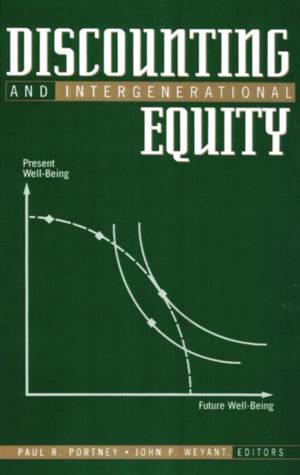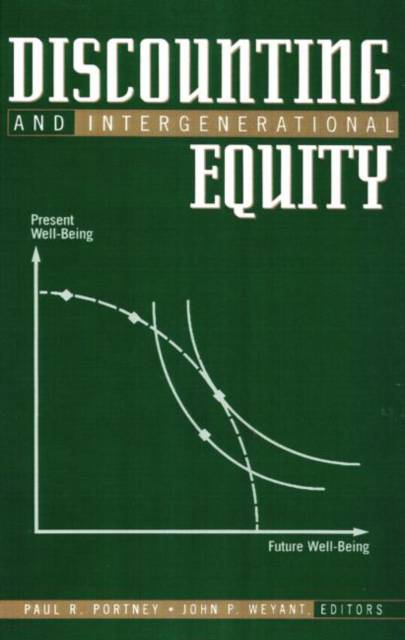
- Afhalen na 1 uur in een winkel met voorraad
- Gratis thuislevering in België vanaf € 30
- Ruim aanbod met 7 miljoen producten
- Afhalen na 1 uur in een winkel met voorraad
- Gratis thuislevering in België vanaf € 30
- Ruim aanbod met 7 miljoen producten
Zoeken
Omschrijving
The full effects of decisions made today about many environmental policies -including climate change and nuclear waste- will not be felt for many years. For issues with long-term ramifications, analysts often employ discount rates to compare present and future costs and benefits. This is reasonable, and discounting has become a procedure that raises few objections. But are the methods appropriate for measuring costs and benefits for decisions that will have impacts 20 to 30 years from now the right ones to employ for a future that lies 200 to 300 years in the future? This landmark book argues that methods reasonable for measuring gains and losses for a generation into the future may not be appropriate when applied to a longer span of time. Paul Portney and John Weyant have assembled some of the world's foremost economists to reconsider the purpose, ethical implications, and application of discounting in light of recent research and current policy concerns. These experts note reasons why conventional calculations involved in discounting are undermined when considering costs and benefits in the distant future, including uncertainty about the values and preferences of future generations, and uncertainties about available technologies. Rather than simply disassemble current methodologies, the contributors examine innovations that will make discounting a more compelling tool for policy choices that influence the distant future. They discuss the combination of a high shout-term with a low long-term diescount rate, explore discounting according to more than one set of anticipated preferences for the future, and outline alternatives involving simultaneous consideration of valuation, discounting and political acceptability.
Specificaties
Betrokkenen
- Auteur(s):
- Uitgeverij:
Inhoud
- Aantal bladzijden:
- 200
- Taal:
- Engels
- Reeks:
Eigenschappen
- Productcode (EAN):
- 9780915707898
- Verschijningsdatum:
- 3/05/1999
- Uitvoering:
- Hardcover
- Formaat:
- Genaaid
- Afmetingen:
- 160 mm x 235 mm
- Gewicht:
- 449 g

Alleen bij Standaard Boekhandel
+ 549 punten op je klantenkaart van Standaard Boekhandel
Beoordelingen
We publiceren alleen reviews die voldoen aan de voorwaarden voor reviews. Bekijk onze voorwaarden voor reviews.








